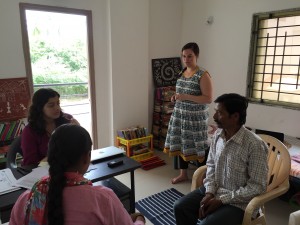Putting Women’s Education in India into Perspective
Evan explains why Nanubhai’s mission is so important.
Women’s Education in India
According to data compiled by the United Nations, only 51% of Indian women
(15 and older) are literate. If you look at the age group of Indian women from the age
range of 15 to 24 though, the literacy rate improves significantly to 74%. In comparison,
the corresponding rates for men are 75% for men 15 and older and 88% for men between
the ages of 15 to 24. While women make 46% of secondary enrollment, currently,
women make up only 40% of tertiary enrollment (enrollment in college and university
programs).
The overall levels of education in the younger generations of Indians seem to be
improving and with this improvement there needs to be more opportunities for girls to
continue their education and pursue college degrees. If receiving a college education
seems completely out of reach, what incentive is there for girls to value their education
and graduate high school? To some girls in this situation, continuing their secondary
education may seem useless in the larger scheme of things.
This is why NEF’s mission is so important in helping India achieve growth. If
there were more opportunities offered to help girls attend college, more girls would be
incentivized to graduate high school and to pursue attending college. Educating more
women would allow India to utilized untapped resources. Women present an opportunity
for India to further develop. In half of the population is underutilized, India will have a
hard time reaching its potential and will continue to be inefficient. Educating girls just
makes common sense and supporting NEF can help make this vision a reality.
(Source: http://unstats.un.org/unsd/demographic/products/socind/default.htm)

